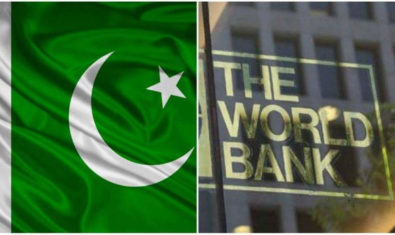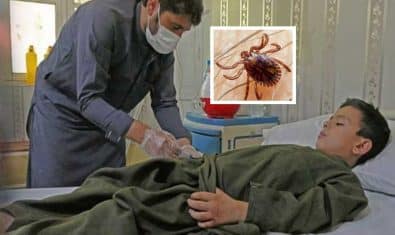Citi Pharma Limited, the supplier of raw material to leading brands of medicine, GSK, and Abbott, has planned to issue an Initial Public Offering (IPO) on Pakistan Stock Exchange (PSX) on June 15 and 16.
The IPO is aimed at raising over Rs. 2 billion for the expansion of its various projects, it has been learned.
The entire issue will be offered through Book Building at a Floor Price of Rs. 28 per share (including a premium of Rs. 18 per share) with a maximum price band of up to 40 percent.
The bidders shall be allowed to place bids for 100 percent of the Issue size, and the Strike Price shall be the price at which 100 percent of the issue is subscribed. However, the successful bidders shall be provisionally allotted only 75 percent of the Issue size, i.e., 54,519,000 shares, and the remaining 25 percent, i.e., 18,173,000 shares shall be offered to the retail investors.
In case the retail portion of the issue remains unsubscribed, the unsubscribed shares will be allotted to the successful bidders on a pro-rata basis.
The lead manager and book-runner for the IPO is Topline Securities while the company appointed Faysal Bank to execute the financial matters.
ALSO READ
Pakistan’s Mega Joint Venture of Mineral Exploration is Planning an IPO at PSX
Expansion Plans
The company intends to build three manufacturing facilities, taking total capacity to 200,000 vials/injectables per day; dry powder/suspension 60,000 bottles per day; capsules 4,200,000 per day; and tablets 4,500,000 per day.
These include dedicated manufacturing lines for Penicillin, Cephalosporin, and Psychotropic & Narcotics drugs.
It has also planned to expand its existing capacity of 3,600 tons per annum of Paracetamol to 6,000 tons per annum. Further to this, CPL plans to add new APIs to its existing product line, i.e., Ascorbic Acid, Chloroquine Phosphate, and Hydroxychloroquine Sulfate; subsequently, these will also add formulation products of the same to the company’s portfolio.
The entire pharmaceutical project will be financed with the proceeds from the IPO (i.e., Rs. 1.112 billion), and for the Hospital project, only Rs. 922.5 million will be financed through IPO proceeds and the remainder of Rs. 503.4 million will be debt-financed.
CitiPharma Limited planned to build a 50-bed, state-of-the-art healthcare facility, at main Gulberg III, Lahore. For this purpose, the company had acquired a freehold land of 4-Kanal at Hali Road, Lahore, in August 2017 for Rs. 264.2 million from internally generated funds.
As part of the plan, the hospital facility will cater to the following segments:
- Out Patient Department (OPD) – Consultancy Clinics
- General Operations
- Diagnostic Services (i.e, X-rays, Laboratory, MRI/CT scan)
About Citi Pharma Limited
Citi Pharma Limited was incorporated as a private limited company in Pakistan in 2012. The current sponsors of CPL acquired the business operations of Askari Pharmaceuticals (Private) Limited (APPL) from Army Welfare Trust (AWT) through a Business Sales Agreement (BSA) in 2013. The operations of APPL were transferred into CPL, which continued the principal business.
The principal business of CPL is manufacturing and sale of (i) Active Pharmaceutical Ingredients (APIs) and (ii) Pharmaceutical Formulation. The company is one of the prominent API manufacturers in Pakistan.
CPL is amongst the few current Good Manufacturing Practice (cGMP) compliant companies in Pakistan and has successfully passed 110 audits by pharmaceutical companies for vendor enlistment.
Pakistan’s Pharma Industry
It is standard practice for buyers of APIs in Pakistan to visit and audit the API producers before including them in their vendor list to ensure the quality of the material.
Some of the key pharmaceutical players in Pakistan, such as GlaxoSmithKline Pakistan Limited (GSK), The Searle Company Limited (Searle), Barret Hodgson Pakistan (Private) Limited (BHPL), Martin Dow Limited (MDL), and Sami Pharmaceuticals (Private) Limited (SPL) are procuring their APIs from CPL.
The company made a profit of Rs. 145 million in the financial year 2019-20. It also made a profit of Rs. 168 million in the first half of the current financial year.
During the current year (9MFY21), the company has already breached the Rs. 4.01 billion marks in sales revenue and expects to close the year at Rs. 6.2 billion in sales. This is a 5-year CAGR growth of 36.2 percent.
However, taking a prudent view, the company has taken an annual growth rate of 20 percent while developing its sales projections.
In the wake of the coronavirus pandemic of 2020, public awareness about the usage of conventional medicine has also risen. With the increase in healthcare focus and spending, the expenditure on medicine is expected to increase the demand for medicine, and consequently, the demand for APIs is also expected to increase.
Hence, this could be a major demand driver for the company’s product.
The pharmaceutical market in Pakistan was worth approximately Rs. 501 billion in 2020. In 2020, the industry witnessed a growth of 10.05 percent and posted a 4-year CAGR of 11.48 percent (2016-2020).
At present, Pakistan produces a variety of medicines and meets more than 70 percent of the demand for domestic pharmaceutical products. The majority of the raw material (i.e., 90-95 percent) for the pharmaceutical industry is imported. Pakistan, China, and India serve as popular import destinations.
The pharmaceutical industry in Pakistan is highly competitive, given that approximately 80 percent market share is held by the top 50 companies in terms of revenue.
As of April 2020, there are more than 650 manufacturing units and over 9,000 actively marketed drugs. During the years 2000 to 2013, the industry witnessed a regulatory price freeze, whereby the pharmaceutical companies in Pakistan were not allowed to increase the prices of medicines regardless of the increasing cost of production.
This policy significantly dented the profitability of the pharma sector and was the lead cause of many MNCs exiting the country.
In 2018, the Government of Pakistan devised the ‘Drug Pricing Policy’. Under this policy, the market retail price of pharmaceutical products has been linked to the Consumer Price Index (CPI). The drugs are broken into two categories with different caps on the increase in pricing of each type.
Effective July 1, 2018, the manufacturers and importers of medicines have been allowed to increase the prices of essential drugs equal to 70 percent increase in CPI (with a cap of 7 percent) and prices of all other drugs up to increase in CPI (with a cap of 10 percent).
As a middle-income country, with a weak healthcare infrastructure and a population of around 225 million, Pakistan’s total healthcare spending is one of the lowest in the world.
Cumulative health expenditures by Federal and Provincial Governments in FY19 increased to Rs. 421.8 billion from Rs. 416.5 billion last year, showing an increase of only 1.3 percent.
During FY20, the total public healthcare sector expenditures contribute 1.1 percent of the total GDP.
Pakistan’s Pharma industry is estimated to be worth $3.09 billion (Rs. 501 billion). The industry is growing with an annual growth of 10.05 percent in 2020 and a 4-year Compound Annual Growth Rate (“CAGR”) of 11.48 percent (2016 – 2020).
Around 9000 drugs are actively marketed and sold at licensed pharmacies upon prescription. The Top 50 companies in terms of sales hold approximately 80 percent share of the industry revenues.
- Most pharma companies in Pakistan import a bulk of APIs from China and India. Following the COVID-19 pandemic, the import of APIs got affected, resulting in an increase in demand for local APIs.
- The pandemic has induced demand and panic buying of medicines coupled with higher hospitalizations. This has given rise to a shortage in APIs and Finished Products.
- Global health care spending has risen at an accelerated growth rate and will likely present many opportunities for the pharmaceutical sector.

























